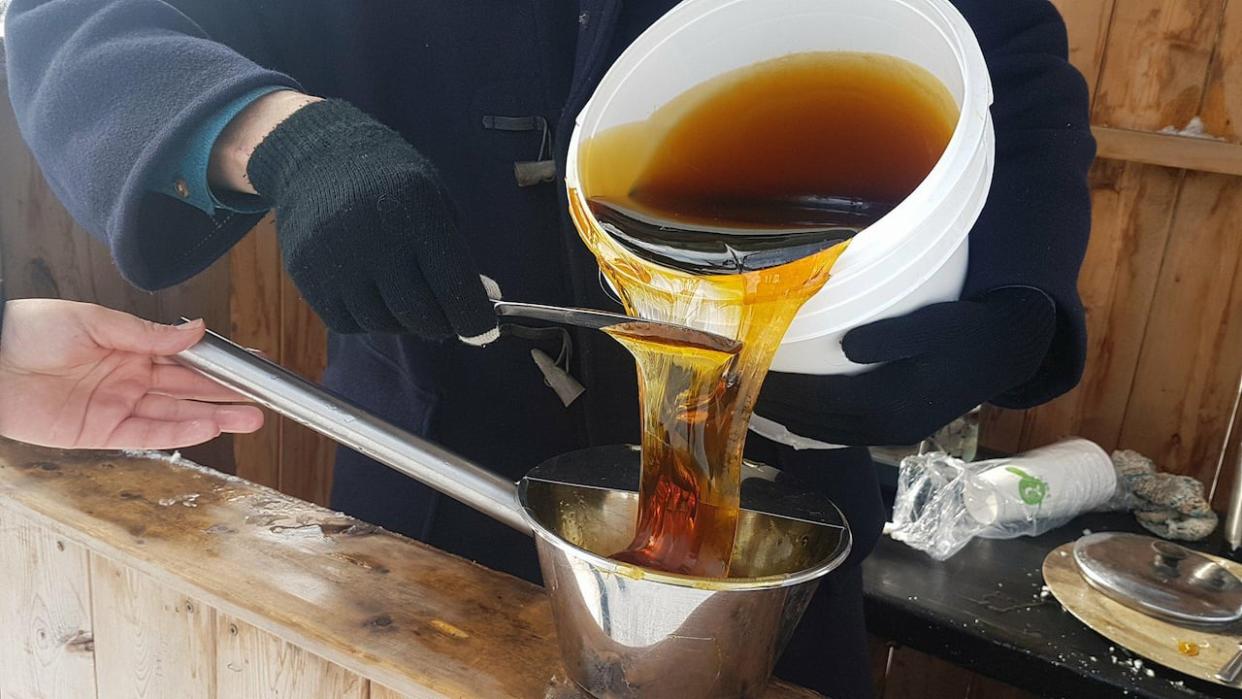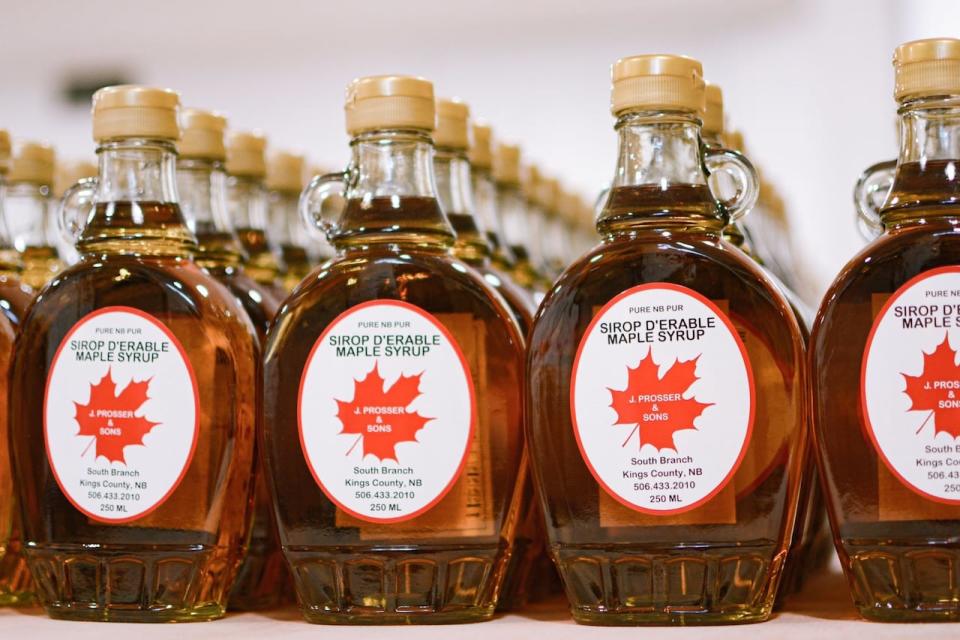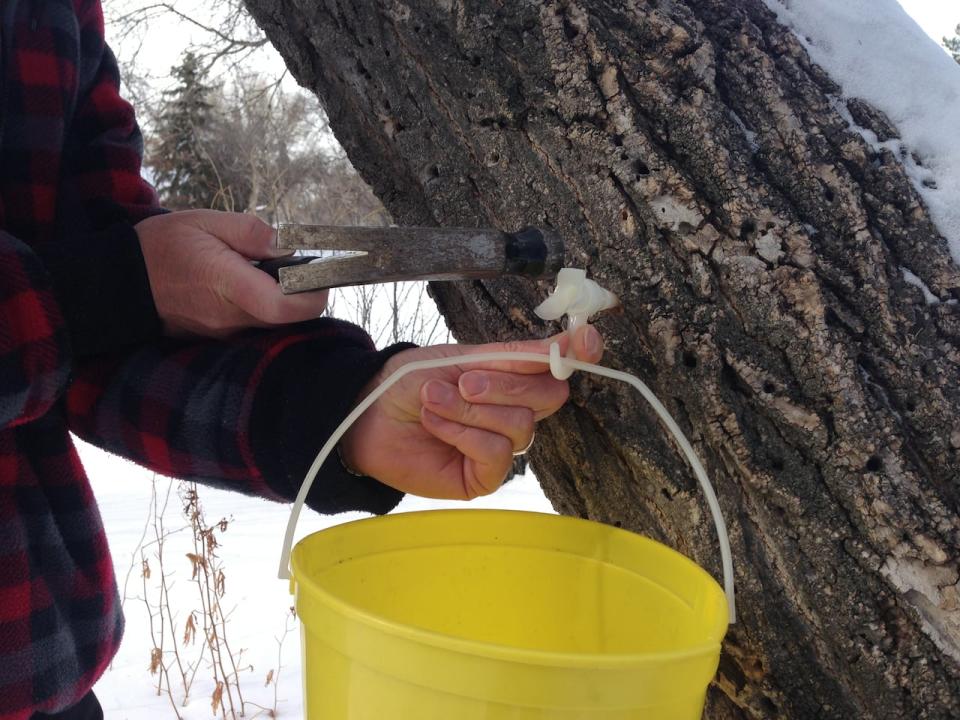Tapped out: N.B. maple syrup production suffered major drop after record year

It was a bad year for maple syrup production in New Brunswick — and across Canada for that matter.
New Brunswick saw a 35 per cent drop in maple syrup production stemming from poor weather conditions, according to data released by Statistics Canada.
The country as a whole saw a 40.1 per cent drop.
It's a tough pill to swallow after 2022, which yielded record-high production.

Louise Poitras, the executive director of the New Brunswick Maple Syrup Association, said extreme cold followed directly by warm weather made for a bad syrup season. (Shane Fowler/CBC)
Louise Poitras, the executive director of the New Brunswick Maple Syrup Association, said the spring season was plagued by three weeks of cold days and nights, followed by two weeks of hot weather, resulting in no sap flow.
"That's a nightmare for producers," Poitras said.
Producers try to extend the season, "but when it stopped, when Mother Nature dictates or decides, it really can be devastating," she said.
"And it creates a lot of stress for the producers. Because, you know, let's face it, [for] some of them, it's their livelihood."
According to Statistics Canada, New Brunswick produced nearly two million litres (527,000 gallons) of maple syrup this year, compared to last year, when more than three million litres (811,000 gallons) were produced.
It was also the lowest number since 2018, when only around 1.4 million litres (361,000 gallons) were produced in New Brunswick.
Agriculture and Agri-Food Canada has an advance payments program for agricultural producers that helps them to survive through the off-season by getting paid in advance.

New Brunswick’s 2023 production of maple syrup products accounted for a gross value of about $20.8 million, about $12 million less than last year. (Ingrid Munroe)
But when a bad year happens, Poitras said, the producers are unable to reimburse the program. The association requested a stay of default to allow producers to have another year to repay their loans.
"It's a relief for them, because, you know, want it or not, you have to get ready for the new season. You have to buy some equipment, supplies, and, you know, hire your people, tap the trees in January and February in order to do that short season."
New Brunswick is the second largest producer of maple syrup in Canada, behind Quebec, which also experienced a large drop this year, of 41.3 per cent.
Other agriculture in New Brunswick also struggled with the year's weather. From waterlogged crops to the inability to harvest feed for cows, the weather was a pain for the entire sector.
Poitras said another challenge with an off-weather season is that it means more "buddy syrup." Buddy syrup is produced near the end of the season, when the weather starts to warm, and the product has a cabbage-like taste.
This year, she said, more buddy syrup was produced, and while it can be sold to processing plants that need sugar for baking products or distilleries, it can't be bottled. It's also worth less on the market, despite still being a lot of work to harvest.

Poitras said even if New Brunswick producers don't have the revenue to reimburse the government after tapping into the advance payments program, they still need to prepare for the next season. (CBC)
New Brunswick's 2023 production has a gross value of about $20.8 million, which was more than $12 million less than last year.
Poitras said agri-insurance for maple syrup producers, similar to what is available for the potato industry, would help during bad years. A producer would be paid through insurance and not have to worry about trying to sell off buddy syrup.
She said the maple syrup association has been working with the government on this for six years, and an announcement will be made in January.


